Fight School Drop Out in Shan State, Myanmar
The current situation in Myanmar is more than complex – ethnic minorities are torn between a political crisis, increasing poverty, drug and human trafficking […]
I was unable to travel to anywhere else other than Yangon for security reasons. Despite this, I managed to meet more than one third of the local sponsorship programme managers.
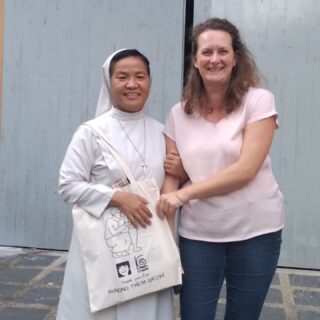
Standing on the right is Anne Monmoton who has been in charge of Children of the Mekong Myanmar for 12 years.
Anne, you were able to return to Myanmar for the first time since Covid and the start of the civil war. What were your impressions?
I was surprised by the mobilization of local programme managers and their ability to act; the Burmese have a resilience capacity and an incredible ability to face difficult situations. I was not able to go to Yangon for security reasons but I was able to meet more than a third of the sponsorship programme managers who came to Yangon to meet me and talk about their programmes, and their situation. Most of those I met are always perfectly connected with the young sponsored children and continue to follow them, even though many were spread out in their villages or in refugee camps after the bombings of their villages.
As an outside charity working in Myanmar, I was the first permanent worker to come back. The French volunteers rapidly left at the beginning of Covid in March 2020 and no one has returned since. This has profoundly affected them. They have seen that in concrete terms, we continue to support them and that we do not abandon them to their fate.
Can you briefly describe the situation in Myanmar? Is the fighting still on-going? Are the families safe?
The families are more or less safe today but in extremely precarious circumstances. A lot of them are in internal refugee camps or in very offset villages (for instance in the Chin Hills in the north-west) that the Burmese military has not been able to rejoin. These are pretty well-off. Others are in the jungle, in the countryside, and survive as best as they can. They return to their homes as soon as they can. But this is risky, as the military is around and hunting down anyone who could help the civilian popular defense groups in any way. So any action or gesture can be interpreted as an act of resistance. The population lives in fear of being suspected and arrested. They are hyper-vigilant, not knowing what could happen. Some leaders living in areas heavily affected by fighting live with a bag of personal belongings, ready to leave at any moment for safety. They will surreptitiously come back as soon as the situation allows. Whatever it is, they are always on alert in a state of persistent stress.
The situation in large cities, espacially Yangon, is different. Despite daily attacks, people are generally safe. This does not prevent them from being scared of what could happen as the military and the police constantly patrol and live in impunity. They are the ones who make the law.
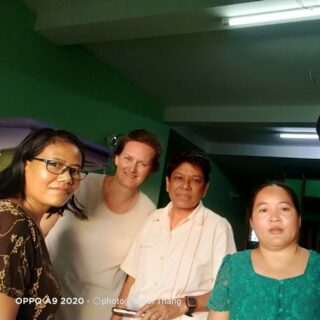
Has the COTM’s action adapted to the situation? How do donations and sponsorships help families today?
The sponsorships are distributed to the families, directly or through third parties. This is done hand to hand or through a basic banking system (the people go to stores to get their money). This helps them to live or survive on a daily basis; the price of food, petrol, internet, has more than doubled or tripled.
Since the beginning of March 2022, seeing that the conflict will last, we encourage the managers to organise alternative courses in villages, the households that can, and the refugee camps. The sponsorships and the donations allow compensation to the teachers, many of whom are on strike and have been dismissed from the national education system. We thus support, on top of the sponsored children, more than 6000 children in different regions, so that they can continue to study despite the circumstances. The managers are very involved in these projects. They want the young to be able to continue to study and not be doubly penalised by this political crisis.
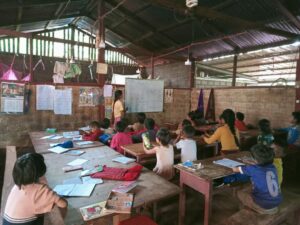 What are the major projects for the coming year?
What are the major projects for the coming year?
We will continue to support young people who should be in school but are not (either the teachers are on strike and the school is closed, or it is too dangerous to go to the school in conflict areas) to ensure that they continue to receive instruction and education. We will also help young people in their final year (Year 13), who unfortunately will not be able to re-enrolled. Those ones will receive short but professional training to have a better chance of finding a job. Young people suspected of joining the resistance are particularly vulnerable. A lot of young boys and girls leave abroad to earn a living. The political but also economic conditions are so bad. The managers reminded me of the importance of taking special care of this generation.
We will continue to animate the remote network of programme managers so that they continue to follow the youg people closely. And why not propose educational activities, on top of the distribution of sponsorships, to fight against the closure of schools? We have also hired two local Burmese coordinators who can accompany these officials on the field; these people must also be trained and supported. The political crisis and the impossibility for the moment to send volunteers require us to review our way of working, not only for a short time but in the long term. Unfortunately, the current situation will – according to all the people I have met – continue and even get worse. The presence of Children of the Mekong will be all the more necessary.
Learn more about our privacy policy here.
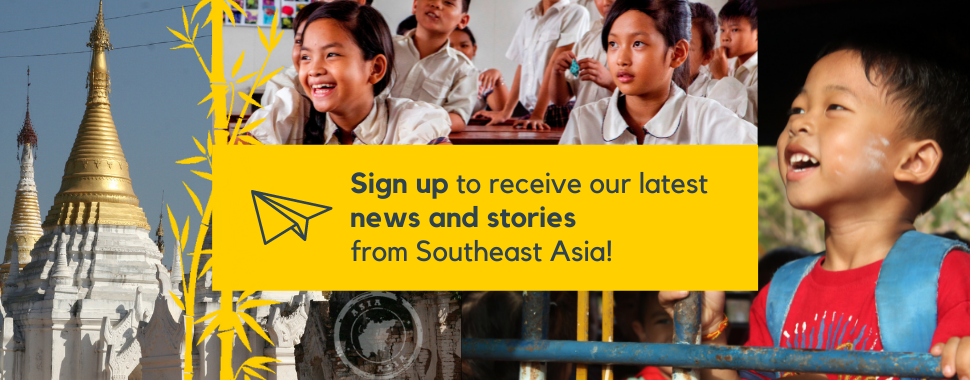
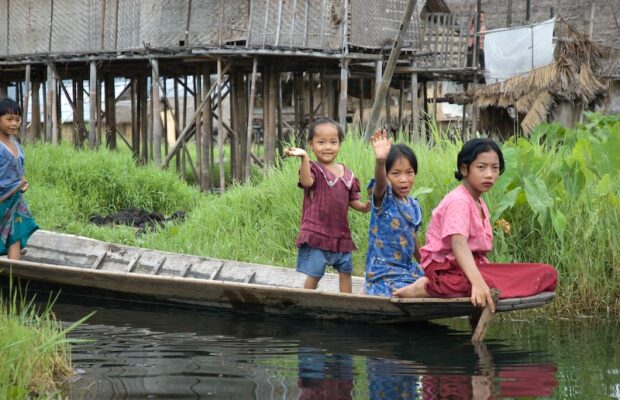
The current situation in Myanmar is more than complex – ethnic minorities are torn between a political crisis, increasing poverty, drug and human trafficking […]
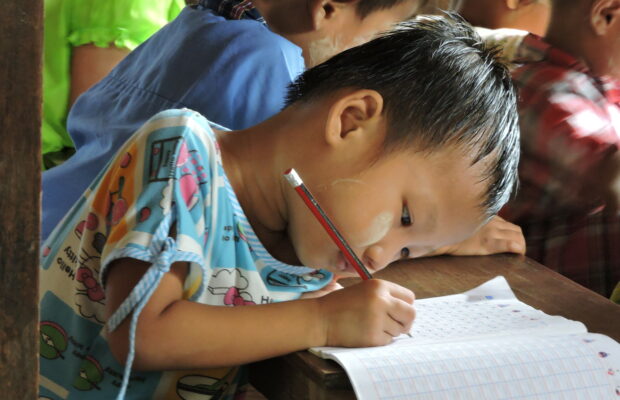
It is a real challenge for children in Tedim to go to school. This child sponsorship is a unique opportunity for these children to […]
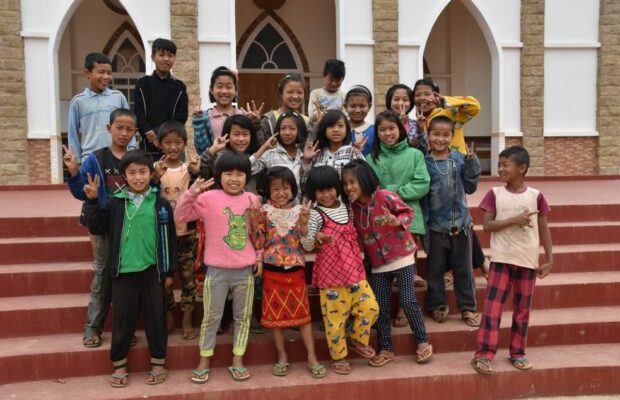
The Nam Khai programme supports the education of children who live in an isolated rural region plagued by armed conflict, drug trafficking and human […]
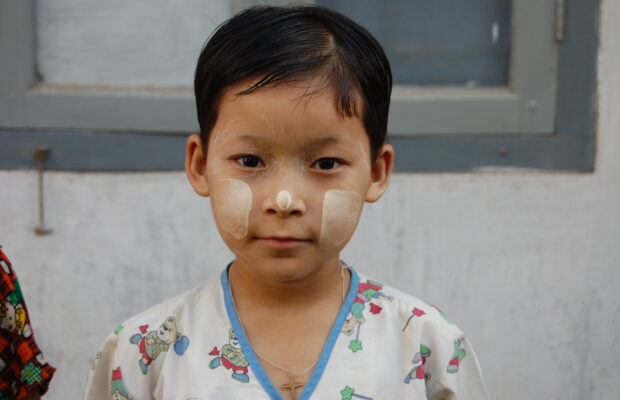
Sponsor a child from Myanmar
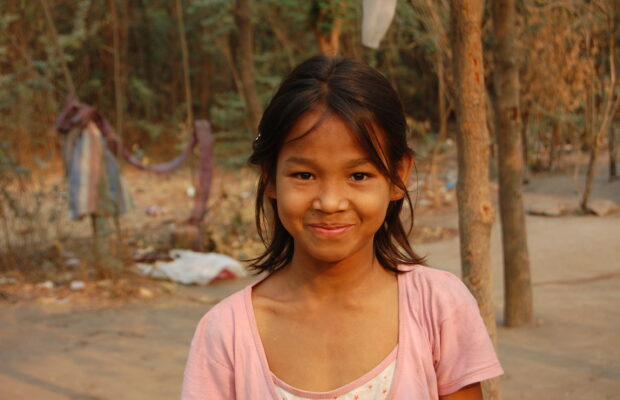
The Kyauk Tan centre, located east of Yangon, caters to children from communities that live on the margins of development. One-third of the children […]